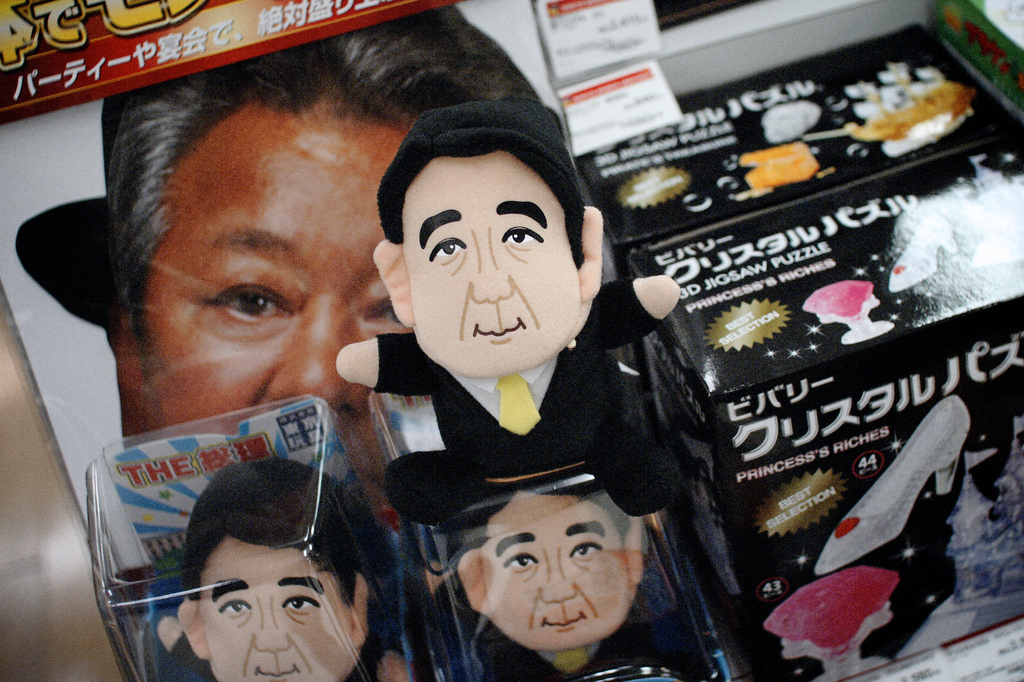The public reaction to the alleged nepotism on the part of 62-year-old Shinzo Abe led to the fact that his support was reduced to 30% - the lowest level for all of his reign. In May, Abe was accused of helping Kake Gakuen school, headed by a longtime friend of Prime Minister. The latter supposedly helped obtain permission to establish a veterinary school in a special economic zone. Abe denied that he had ever helped the friend, but this scandal was already the second for him this year and led to the defeat of the Liberal Democratic Party in the July elections. In addition, Abe's popularity is threatened by the public's overall frustration in his work, as well as problems in the Ministry of Defense of the country.
Last week, Defense Minister Tomomi Inada resigned amid reports that she helped hide records of dangers faced by Japanese peacekeepers in Southern Sudan. Now, Prime Minister has to make reshuffles in the Cabinet to strengthen his rating. However, it is not clear yet whether he will be able to remain in the office until the election in September 2018.
"Now there is a real possibility that Abe will leave his post until the next election. If this happens, one of the most important issues for investors will be the question of the fate of the plan for reviving the Japanese economy, known as "Abenomics", says Capital Economics in a recent survey.
Three key areas of Abenomics are tax policy, monetary policy easing and structural reforms. While the necessary measures have been taken in the first two areas, the work on the reforms continues. As Abe's political influence weakens, there are growing risks that the reforms will be postponed, and the leader will focus on restoring his reputation.
"This scandal was a serious threat to Abenomics, as the level of support has fallen before the important reforms were completed. The government needs a high degree of trust from the citizens, as the reforms can lead to the loss of jobs," said an economist at Natixis Japan Securities.
Expected key reforms suggest an increase in salaries and social benefits in order to attract more women to the labor market.
Recently, serious structural reforms disappeared from the agenda. There are no big hopes for their implementation, either in case Abe remains in office or if he goes away, Capital Economics suggests.
Abe has already left his post before the expiration of his term. This happened in 2007 amid a series of scandals in his office. However, if he leaves this time, his economic program can survive. In Japan, there is no serious debate about any alternative economic program, so the key components of Abenomics will remain intact.
If Abe leaves before the end of his term, his foreign minister, Fumio Kishida, will probably succeed him, Teneo Intelligence’s vice president Tobias Harris said: "After Abe's service, Kisida will find it difficult to abandon Abe's heritage entirely. He gently criticizes Abenomics, pointing out the problems of inequality. But (his appointment) will lead to a softening of Abe's policy, rather than a decisive break with it. "
source: cnbc.com
Last week, Defense Minister Tomomi Inada resigned amid reports that she helped hide records of dangers faced by Japanese peacekeepers in Southern Sudan. Now, Prime Minister has to make reshuffles in the Cabinet to strengthen his rating. However, it is not clear yet whether he will be able to remain in the office until the election in September 2018.
"Now there is a real possibility that Abe will leave his post until the next election. If this happens, one of the most important issues for investors will be the question of the fate of the plan for reviving the Japanese economy, known as "Abenomics", says Capital Economics in a recent survey.
Three key areas of Abenomics are tax policy, monetary policy easing and structural reforms. While the necessary measures have been taken in the first two areas, the work on the reforms continues. As Abe's political influence weakens, there are growing risks that the reforms will be postponed, and the leader will focus on restoring his reputation.
"This scandal was a serious threat to Abenomics, as the level of support has fallen before the important reforms were completed. The government needs a high degree of trust from the citizens, as the reforms can lead to the loss of jobs," said an economist at Natixis Japan Securities.
Expected key reforms suggest an increase in salaries and social benefits in order to attract more women to the labor market.
Recently, serious structural reforms disappeared from the agenda. There are no big hopes for their implementation, either in case Abe remains in office or if he goes away, Capital Economics suggests.
Abe has already left his post before the expiration of his term. This happened in 2007 amid a series of scandals in his office. However, if he leaves this time, his economic program can survive. In Japan, there is no serious debate about any alternative economic program, so the key components of Abenomics will remain intact.
If Abe leaves before the end of his term, his foreign minister, Fumio Kishida, will probably succeed him, Teneo Intelligence’s vice president Tobias Harris said: "After Abe's service, Kisida will find it difficult to abandon Abe's heritage entirely. He gently criticizes Abenomics, pointing out the problems of inequality. But (his appointment) will lead to a softening of Abe's policy, rather than a decisive break with it. "
source: cnbc.com





